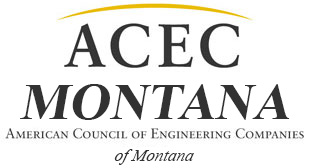
What Is ACEC?
America's consulting engineering firms are among the best in the world, designing some of the most technologically advanced infrastructure. Just as they strive to continually update and improve their engineering proficiency, these entrepreneurs must also cultivate their business practices skills to compete in domestic and international marketplaces. The American Council of Engineering Companies, orACEC, provides the executives of private engineering firms with the tools and educational opportunities to be better business owners and managers. ACEC also presents a strong, cohesive voice for the profession in national legislative and policy debates to help ensure that firms can compete fairly in an increasingly aggressive world market.
ACEC's origins date back to 1910 with the founding of the American Institute of Consulting Engineers. The Consulting Engineers Council was established in 1956, and in 1973, the Council merged with the Institute to form the American Consulting Engineers Council. The goals of this larger umbrella group were to help its members.
- achieve higher professional and business standards for consulting engineers;
- ensure that ethical standards were maintained;
- act as an information clearinghouse for the profession;
- advise on enactment of national, state and local legislation affecting members' interests; and
- support and assist the advancement of the science and practice of engineering.
ACEC today is the largest national organization of engineers engaged in the practice of consulting engineering. It is comprised of 51 state and regional Member Organizations, representing more than 5,800 independent engineering firms throughout the United States. These firms employ more than 300,000 engineers, architects, land surveyors, scientists, technicians, or other professionals, who design some $100 billion of private and public works annually. Consulting engineering firms join ACEC through their Member Organizations.
ACEC's member firms offer engineering expertise in a wide range of disciplines, including civil, structural, mechanical, electrical, environmental, industrial, metallurgical, chemical, acoustical, mining and agricultural. The firms range in size from a single registered professional engineer to corporations employing thousands of professionals, and three out of four firms employ fewer than 25 people each.
Governed By Its Members
ACEC is governed by a board of 51 National Directors, who are also consulting engineers, each representing a state or regional Member Organization. The board meets twice a year to determine the Council's policies and directives, which then are implemented and administered by a nine-memberExecutive Committee made up of ACEC's national volunteer officers. The Executive Committee meets four times a year.
ACEC's programs are managed by an executive vice president who is assisted by a deputy and a senior management group. Funding for ACEC's programs and activities comes from dues paid by the 51 Member Organizations, plus other income generated primarily by the sale of publications and by its meetings and seminars. The Board of Directors, the Executive Committee and ACEC's senior management group regularly review the Council's programs to ensure they provide value to members while meeting the Council's strategic mission, which is:
To strengthen the business environment and image of member firms, focusing on quality professional services in a competitive global marketplace.
The mission statement is supported by five goals:
- Enhance and expand market opportunities for member firms.
- Assist member firms to improve their business ability, upgrade the quality of their services and achieve their financial goals.
- Advocate improvement of the business environment of member firms.
- Continuously improve the professional and business image of member firms and the association.
- Support a flexible and interactive association, and improve its value to the members in a changing market.
To Educate, Represent, Associate
Guided by the strategic mission and goals, ACEC's programs provide representation, association, information, training, resources and other tools to the principals of member firms so that they can be successful business people. These programs focus on three key areas:
- Business Practices. relating directly to the practice of firms: management, finance, marketing, human resources, legal issues and planning. Includes:
- conventions
- the ACEC Bookshop (and ACEC Bookshop News)
- seminars, workshops
- Peer Review
- partnerships, affiliations
- advanced management training
- quality program
- the annual Business Health Survey
- international business development
- External Forces and Influences. federal legislative and regulatory participation, plus legal representation, to ensure an even playing field in both domestic and international marketplaces, including:
- federal agencies
- Consulting Congress Day
- infrastructure
- small business interests
- procurement
- First Friday Breakfasts
- ACEC/PAC
- Legal Defense Fund
- contract documents
- professional liability (including ACEC's annual "Liability Survey")
- workplace issues
- Image and Communications. effectively communicating to lawmakers, government, clients, educators, students, civic groups, and others that consulting engineers are talented problem-solvers, strategic thinkers, and community leaders. Includes:
- American Consulting Engineer magazine
- The Last Word newsletter
- Engineering Excellence Awards
- ACEC Fellows
- National Engineers Week
- Media Relations, Speakers Network
Coalitions, Affiliates & Special Interest Committees
ACEC's coalitions, affiliations and special interest groups give member firms the opportunity to become more involved in issues of particular importance to them. They include:
- Environmental Business Action Coalition (EBAC)
- Design Professionals Coalition (DPC)
- Council of American Structural Engineers (CASE)
- Small Firm Council (SFC)
- Council of Professional Surveyors (COPS)
In addition, ACEC also has a special educational foundation, the ACEC Research and Management Foundation (RMF), that specializes in industry-related research projects.
ACEC also is a member of several external organizations, including:
- American Tort Reform Association (ATRA)
- Citizens for Civil Justice Reform (CCJR)
- Rebuild America Coaliton
- Federation Internationale des Ingenieurs Conseils (FIDIC)
- Pan American Federation of Consulting Associations (FEPAC)
- Engineers Joint Contract Documents Committee (EJCDC)
Member Discounts / Benefits
ACEC's large membership allows it to offer its members a number of special discounts on computer software, long distance telephone service, overnight courier services, office supplies and equipment, car rentals and other products and services. ACEC members also enjoy competitive rates on business insurance, life and health insurance and retirement plans.
